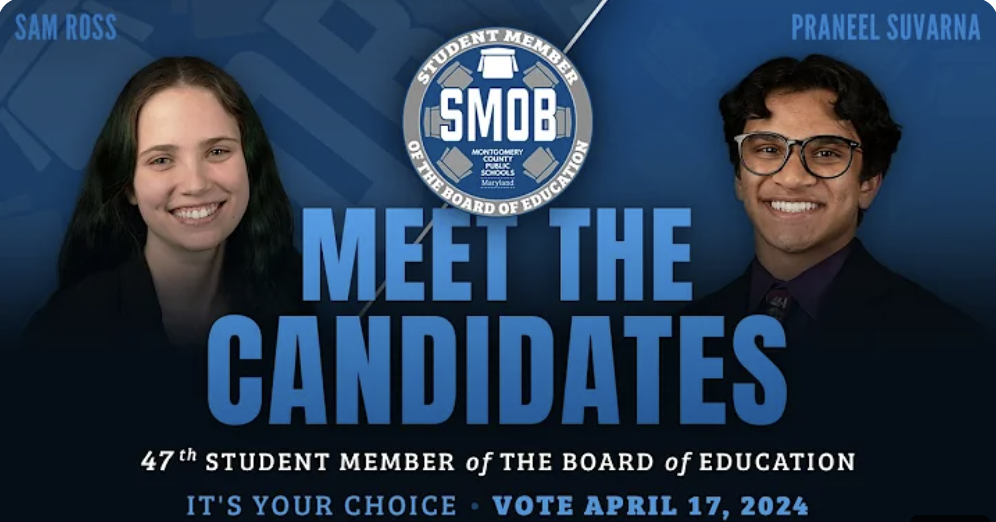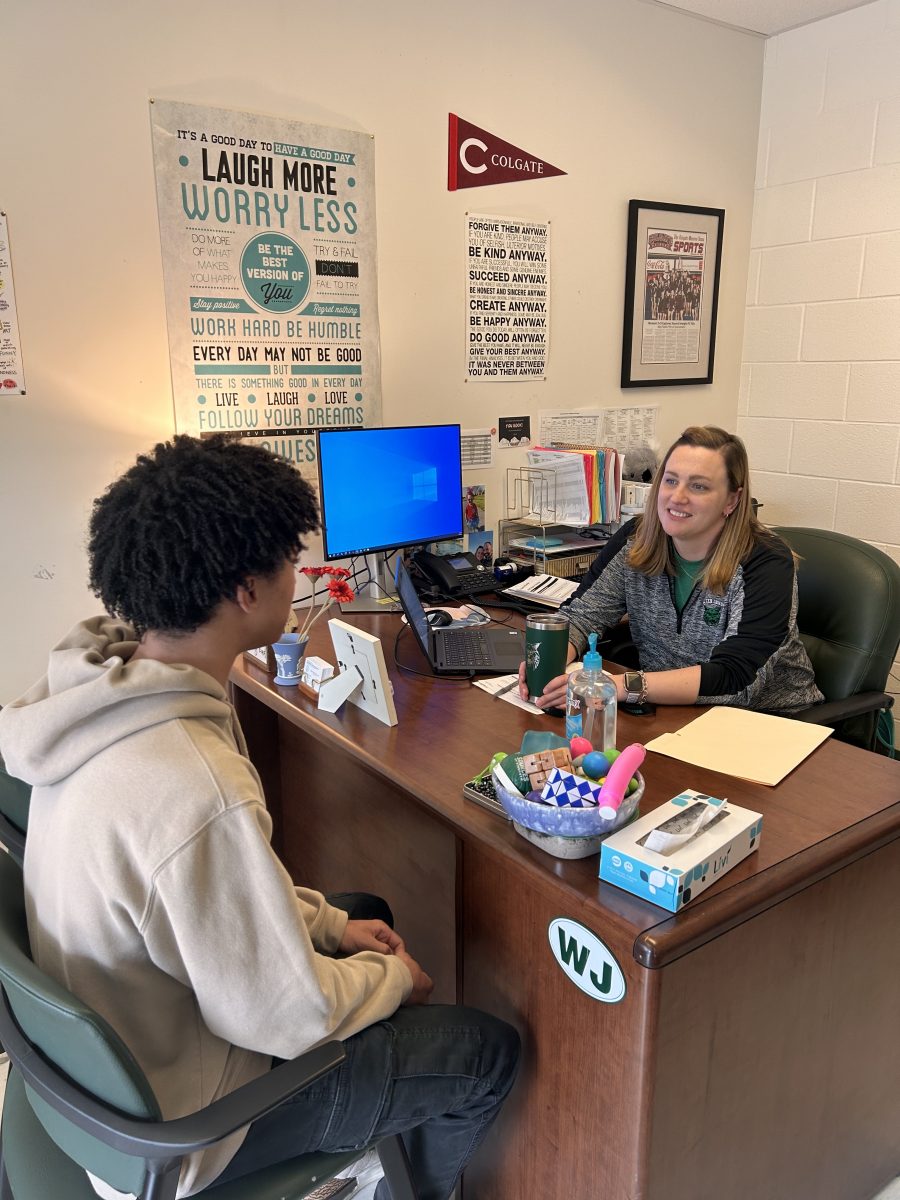Every year, seniors graduate and become high school alumni. While that means they are done with high school, the next step they have to face is college. With the cost of college rising, many students need financial assistance, often in the form of student loans, to pay for that college experience and beyond. However, the interest rates on student loans are set to double, from 3.4 percent to 6.8 percent, which means students will face even more debt than they do now, something no one has to deal with in this struggling economy. Unless Congress acts soon, this is the future that awaits high school and college graduates.
In Maryland schools, all Government classes are required to teach credit laws and facts about student loans and credit cards. Junior Coty Novak already took the class and said he could see how the added debt will affect students and families later in life, because people will have to pay off more and more loans which will add to the current debt people are already expected to pay.
“This is really going to limit people’s prospects,” he said. “People now must get a job that helps pay off these loans, as well as taxes, rent or mortgage and other expenses. People are going to be working a very long time just to pay off the [student] loans.”
Sophomore Kate Coughlin agreed.
“It stinks that student rates will be higher now,” she said. “It will be even harder to go to college now.”
Stafford student loans are fixed-rate student loans for graduate and undergraduate student who attend college at least half-time to help pay for their education. The increase of the interest rate is set to go into effect on July 1, 2013. According to the Center for American Progress (CPA), that increase will affect 7.4 million students who take out, or currently have, student loans nationwide. In Maryland alone, the rising of interest rates will drastically affect families who take part in its public education system. According to a data collection sample conducted by the Department of Education, the increase will result in each borrower having to pay an extra $909 in addition to students’ current debt, which is an average of around $26,000 a year. This would increase Maryland’s statewide student debt to $95,469,523. Coughlin understands what this will do to Maryland’s poor and unemployed population.
“[Because of the increased rates] more poor kids won’t go to college,” she said. “Who wants to take out a loan they know they’ll never be able to pay back?”
There are punishments enacted when someone misses a loan payment and/or defaults on their student loans. Government teacher Nicolas Atencio explained what would happen if someone were to default.
“Usually, there are a lot of consequences concerning student loan payments,” he said. “One consequence is that the entire loan is going to come due. There can also be garnishment of wages and the fact that someone defaulted on their student loans can have detrimental effects on their credit history.”
He added that as a result, the borrower will have great difficulty when applying for credit cards or other loans, and if they receive it, they will be subject to high interest rates.
The drastic change of interest rates may isn’t inevitable because the Senate recently passed a bill with bipartisan support which would keep Stafford student loan rates from doubling.Both Maryland senators, Barbara Mikulski and Ben Cardin, voted in support of the bill.
Aside from the Senate’s bill, President Barack Obama has been urging Congress to prevent the doubling of student loan interest rates. On May 31, he spoke in the White House rose garden, addressing many college students, and made this clear. According to an article from the Associated Press (AP), Obama said that students would receive an additional $1000 in debt if Congress does not stop the interest rates from rising. Coughlin is afraid that is future will be reality.
“While the bill may have passed in the Senate, it won’t pass in the House,” she said. “Even if Congress wanted to do it, they really couldn’t because of gridlock. The parties would have to get along and the House really won’t work with the President, so as a result a bill won’t pass.”
Gridlock occurs when there is a different party controlling the presidency than the party controlling one or both Houses of Congress. In today’s government, the Senate and Presidency are controlled by Democrats and the House of Representatives is controlled by Republicans. As a result, most of the legislation that the President or Senate tries to pass will be killed by the House and vice versa.
Another factor that affects the decision making process, is the large amount of Republican influence since in the Senate. While it is controlled by the Democrats, there are a lot of Republican Senators as well. They have made it very clear they will filibuster, or stall, almost any bill the Democrats pass, and the same goes for Democrats with Republican bills. Atencio knows this and is also unsure that any legislation will pass to stop the raising of loan interest rates.
“A year ago, [Congress] acted but that was only as a result of the Presidential election,” he said. “Obama was hounding Republicans to pass something to prevent the high interest rates and as a result was gaining support from young voters. Romney then talked to Republicans and asked them to help so they delayed the increased rates for one year. Now, there’s really not that much motivation.”
Atencio also said that the House passed legislation that isn’t very favorable to students, though the Obama administration has stated it will be vetoed if it reaches the President’s desk.
Like Atencio and Coughlin, Novak is fully aware that there won’t be any substantial legislation to combat increasing student loans that will pass. Since he understands this, he said he is fearful of what will happen in his life because of it.
“I’m fearful that I’m going to spend the majority of my life paying off loans,” said Novak. “The sad part is I’m paying off loans to get the education I need to be able to get a job to pay off the loans in the first place.”
While students are panicking over the new interest rates and their possible effect on everyone’s lives, Atencio has some advice to help people pay off their loans.
“Make sure you keep on top of everything,” he said. “If you don’t have a job, fill out paperwork for a deference which will help avoid paying loans late. The big mistake students make is taht they don’t make payment and then become delinquent, which is not something you want to be.”

![Since the collapse of the Baltimore Bridge in late March, federal law enforcement has began investigating what preceded the event. In a statement to CBS News, a spokesperson for the FBI said, [The] FBI is present aboard the cargo ship Dali conducting court authorized law enforcement activity. There is no other public information available and we will have no further comment. (Courtesy Isaac Smay via Flickr)](https://www.wjpitch.com/wp-content/uploads/2024/04/53619368036_399400003a_b.jpg)





